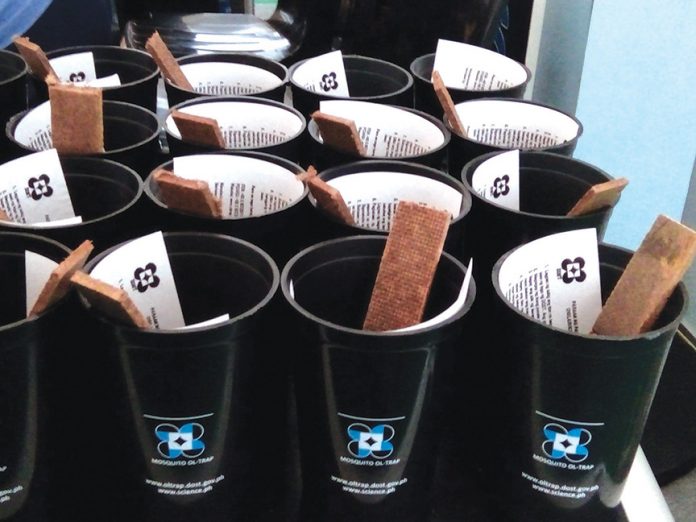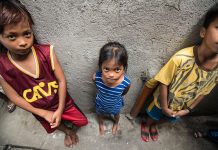“Please, our son needs help!” pleaded Rina as she carried her son Noel to the hospital. The nurses, who were having lunch that hot Friday afternoon, immediately quit eating and tried to calm the mother of the 9-year-old boy from Bansalan, Davao del Sur.
“What happened,” one of the nurses asked. Rina then shared this story: Five days earlier, Noel had a fever and was complaining of abdominal pain. The parents thought it was due to some kind of “wind” because the child had not eaten. The fever, however, was on-and-off for four days.
Despite the treatments, their son’s condition was getting worse. That was when the parents decided to bring the boy to the hospital. By this time, Noel’s breathing was rapid and the pulse was beating fast. His skin was cold and clammy. Chest X-rays showed the boy having an abnormal build-up of fluid in the lungs. He was breathing difficulty. Doctors told the parents that their son was in a state of shock. The boy was immediately brought to the emergency department. Inside the intensive care unit, the boy started bleeding profusely despite the blood transfusion done by the doctors.
Early Sunday, at about three o’clock, Noel died due to the complications of dengue fever.
Four types
“There are four serotypes of dengue viruses, which may be characterized by varying clinical presentations, ranging from self-limited dengue fever to life-threatening dengue hemorrhagic fever and dengue shock syndrome,” wrote Shu-Wen Wa in an article which appeared in Journal of Biomedical Science.
“Known for its potentially life-threatening complications, severe dengue virus infection can lead to vascular leakage, thrombocytopenia, and hemorrhage, although the detailed mechanisms are not fully established.”
Fortunately, children in the future would not be experiencing what Noel had gone through. Thanks to a dengue vaccine that can protect children and adults from the disease – “from the severe form of dengue and from being hospitalized from dengue,” to quote the words of Dr. Maria Rosario Capeding.
A vaccine has been alluded to as one of the best ways to obliterate dengue. “Many biotechnological approaches have been used in attempts to develop dengue vaccines candidates, including live attenuated vaccines, infectious clone-derived vaccines, recombinant live vector systems, subunit vaccines, and nucleic acid vaccines,” reports the 2002 State of the World’s Vaccines and Immunization.
Finally, after more than 20 years, the Sanofi Pasteur has developed such kind of vaccine. “There are several challenges in the development of this vaccine,” said Dr. Capeding, who heads the Department of Microbiology and the Dengue Study Group of Research Institute for Tropical Medicine. For one, there is no animal model for the disease. For another, there are four dengue virus serotypes hence a need for a combined tetravalent vaccine.
Other challenges include a need for demonstration in the absence of protection and the need for large studies and long-term follow-up.
Dengue vaccine
The Sanofi Pasteur dengue vaccine is described by Dr. Capeding as “a live, attenuated, recombinant, (and) tetravalent.” It means the vaccine “will protect individuals against 4 serotypes of dengue.”
“Prevention of dengue is an urgent and growing medical priority in the Philippines,” says Dr. May Book Montellano, president of the Philippine Foundation for Vaccination. And vaccination, she adds, “is widely accepted as one of the most cost-effective ways to reduce the spread of infectious diseases like dengue.”
The Scientific American reported that the dengue vaccine, which is designed to coax the body’s immune system into making antibodies against all four forms of dengue, is a live virus comprised of an attenuated yellow fever virus. (Yellow fever virus and dengue virus have the same genus.) For the vaccine, however, the virus is genetically engineered to include genes encoding for dengue proteins.
The vaccine isn’t perfect yet but it could help. “In clinical trials, it only reduced the chances of developing the disease by about 60 percent,” Scientific American said. “Also, it is only approved for use in people nine to 45 years old who live in dengue-endemic areas —not young children or the elderly. In fact, the vaccine seems to be least effective in children younger than nine years old, particularly among kids under 6, whose immune systems are especially vulnerable and might be part of the group who need the vaccines most.”
According to Sanofi, the vaccine prevents “9 out of 10 cases of severe dengue.” Cameron Simmons, a professor of microbiology and immunology at the University of Melbourne, told Al Jazeera: “The evidence from the vaccine trials is that it can prevent hospitalization for about 80 percent of those who get vaccinated.”
For the vaccine to be effective, a person will need three doses with six-month gap for each dose.
OL Trap
While the dengue vaccine is still far from perfect, the Department of Science and Technology (DOST) is promoting Ovicidal-Larvicidal Trap (OL Trap), a simple but effective vector control method to lower the population of dengue Aedes aegypti mosquitoes, thus reducing dengue cases and controlling dengue transmission.
Developed by DOST-Industrial Technology Development Institute (ITDI), OL Trap works by trapping the eggs and larvae of the dengue-carrying mosquitoes in their laying site with active organic solution and killing them in the process before hatching and going to adult stage.
The science department is working with various government agencies in promoting the tool. “It’s not rocket science,” said Undersecretary Jesus Lorenzo Mateo of the Department of Education. “The OL Trap is a very simple technology but is effective in helping decrease dengue cases among schoolchildren.”
Guffy fish
On the other hand, the Asian Development Bank promotes the use of the larvae-eating guppy fish as biological control against the dengue-carrying mosquitoes. Known as million fish, it can eat up to 102 mosquito larvae a day, according to one study.
“(The fish) offers a viable alternative to using chemicals and can reduce the scale of costly emergency response activities to contain epidemics,” said Gerard Servais, health specialist of the Manila-based bank. “The study we’ve made has shown that the guppy fish don’t have an impact on the biological quality of the water. It’s safe, even for drinking water.”







